UAW strike could cost the US economy up to $500 million A WEEK: Former Chrysler CEO says impact is ‘far bigger than just three plants’ – and car dealers in every city will be affected
The United Auto Workers union strike against Detroit’s three major automakers is now in its fourth day and could cost the U.S. economy as much as $500 million by the end of the week.
General Motors, Ford and Stellantis are bracing for economic impact after refusing to meet union contract demands during crisis talks last weekend.
Former Chrysler CEO and Chairman Bob Nardelli said on Fox Business Mornings with Maria that the economic impact reports woefully underestimate the actual effect the strike will have on the economy.
‘This is much bigger than just three factories going on strike. Every city, every state has dealers that are going to be affected by this,” he said. “This thing has wide and deep tentacles that will impact our economy.”
Deutsche Bank estimated that a full strike could cost each affected automaker about $400 million to $500 million a week if all production were lost. Anderson Economic Group predicts that a full 10-day strike could result in a total economic loss of more than $5 billion.
UAW picketers have entered their fourth day of strikes after manufacturers failed to reach an agreement. The union is calling for wage increases, better working conditions and an end to differentiated employment
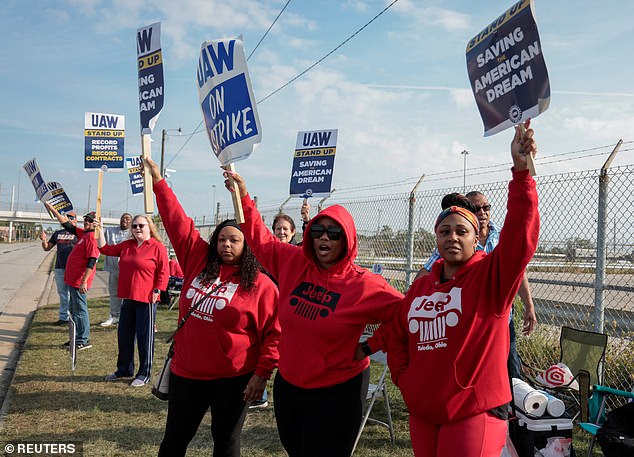
General Motors, Ford and Stellantis have all seen stock market declines and plan to resort to cost-cutting measures as the historic strike continues
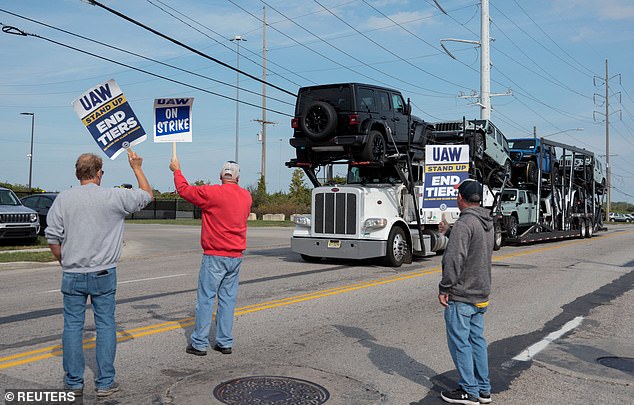
Picketers hold signs as a truck carrying Jeep Wranglers drives past the factory in Toledo, Ohio, on Sunday
Manufacturers saw stock market prices fall when trading opened on Monday, after nearly 13,000 workers walked off the job at once on Friday – the first time all three have gone on strike at the same time.
Ford opened at $12.52, down 0.75 percent, Stellantis opened at $18.94, down 1.61 percent and General Motors opened at $33.77, down 0.50 percent.
Analysts expect factories that build more profitable pickup trucks, such as Ford’s F-150, GM’s Chevy Silverado and Stellantis’ Ram, will be next targeted if the strike continues.
The union wants large wage increases, better pension benefits and an end to differentiated employment; requirements that they believe manufacturers can meet.
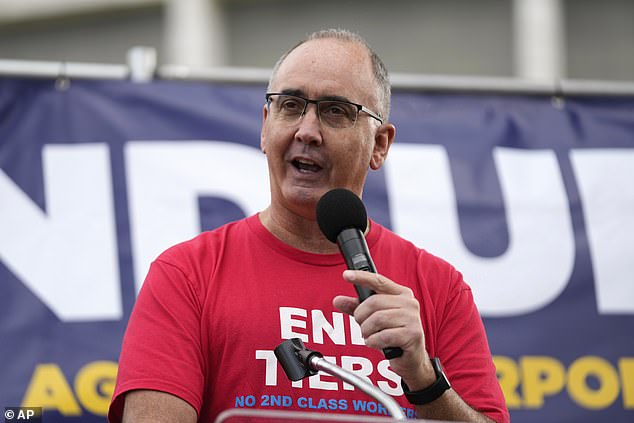
UAW President Shawn Fain (pictured) said they will do whatever it takes to meet union demands
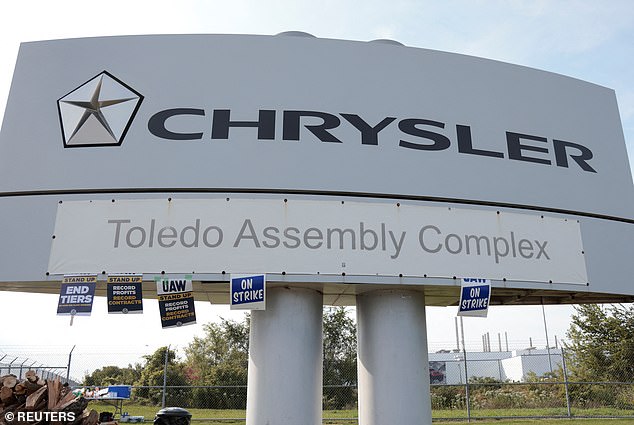
Stellantis made a counter offer with a 21 percent pay increase, which was rejected
GM warned Monday that more than 2,000 workers at its Fairfax Assembly plant in Kansas could be out of work this week due to materials shortages, just days after Ford laid off more than 600 workers.
UAW President Shawn Fain said there were “minimal conversations over the weekend, so the ball is in their court.”
“They’ve made a quarter of a trillion dollars in profits in the last ten years. The CEOs gave themselves a 40 percent pay increase in the last four years,” he added MSNBC’s Morning Joe.
“They could double our wages; not increase the price of vehicles and they would still make billions in profit. This is a choice of the companies. It’s nothing less than two words: corporate greed.’
UAW is demanding raises of up to 40 percent to keep pace with CEOs and they want to restore cost-of-living adjustments. They call for a defined benefit pension for all workers, restore medical benefits for retirees, and increase retirees’ wages.
The union has proposed more paid time off to be with families, suggesting a four-day work week without pay cuts. They are also asking for the right to strike over factory closures, as manufacturers close factories to transition them to electric vehicle production.
Manufacturers say they have made fair counter-offers and that no one wins in a strike. Negative effects are already becoming visible.
“It’s unfortunate that the UAW leadership’s decision to call a strike at Wentzville Assembly has already had a negative ripple effect, with GM’s Fairfax Assembly plant in Kansas and its 2,000 team members expected to hit as soon as early this week will be at a standstill,” says General Motors. said in a statement.
“This is due to a shortage of critical stamps supplied to Fairfax by Wentzville’s stamping operations. We are working under an expired agreement with Fairfax. Unfortunately, there are no provisions that allow company-issued SUB payments in these circumstances.”

Picketers chant “No contract, no peace!” in Wentzville, Missouri during the fourth day of UAW attacks
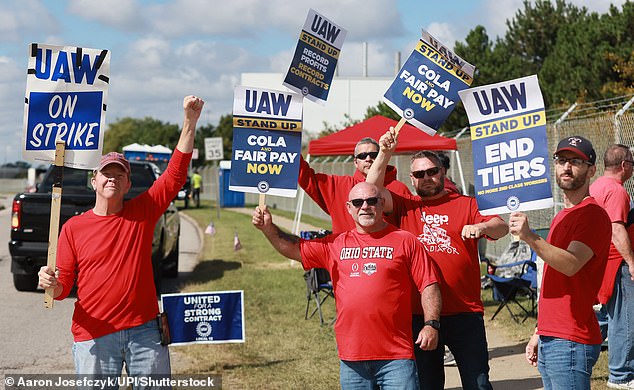
Deutsche Bank estimated that a full strike could cost each affected automaker about $400 million to $500 million per week
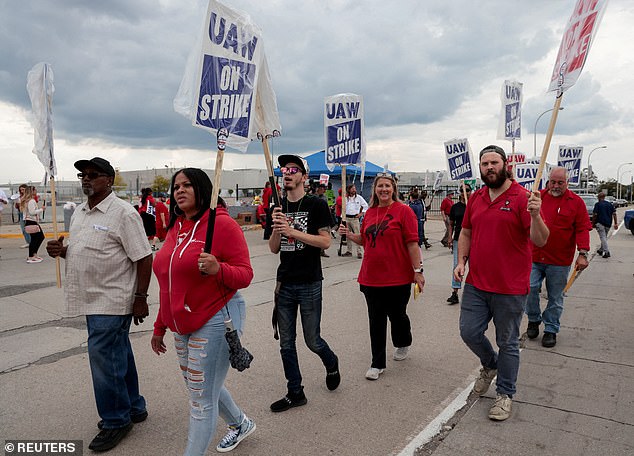
Striking auto workers picket outside the Ford plant in Wayne, Michigan, as 600 workers were laid off after the first day of strike
Ford is also preparing for a strike by Canadian auto workers as contract denials between Unifor, the union representing auto workers in Canada, and manufacturers near their deadline.
Unifor President Lana Payne shared this CNN‘We’re not close at all. “There is still a lot of work to be done to reach an agreement at midnight on Monday.”
As strikes continue at Detroit’s big three, Tesla’s stock is rising, giving a benefit to other non-union automakers and electric vehicles.
President Biden said he would say he would have contacts to help with contract negotiations, but Fain says there is no role for the government.
The coordinated strike comes at a time when U.S. approval of unions is at its highest point in decades, even as union membership remains largely unchanged.
